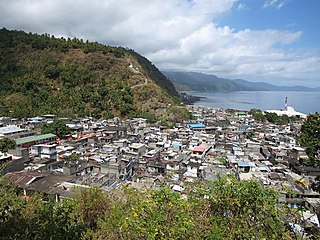Mutsamudu, located on the island of Anjouan in the Comoros, boasts a blend of Swahili culture and French colonial heritage. This city is touted for its ancient citadel and medina, narrow streets flanked by aged buildings that whisper tales of the past. Visitors can explore the bustling marketplaces and picturesque waterfront, or immerse themselves in local traditions and cuisine. Mutsamudu serves as a vibrant gateway to the natural beauty and cultural richness of the Comoros, making it a must-visit for travelers seeking an authentic and enchanting experience.
Before visiting, ensure to check local travel advisories and vaccination requirements to ensure a smooth journey to Mutsamudu.
Pack light, comfortable clothing and good walking shoes to explore Mutsamudu’s hilly terrain and historical sites comfortably.
Top things to do & see in Mutsamudu
Select the following sights and activities to discover best tickets and tours available in Mutsamudu.
Mutsamudu: The Historic Heart of Comoros
| Country | Comoros |
| Time in Mutsamudu | GMT+3 |
| Language spoken | Comorian, French, Arabic |
| Population | 24,404 (CIA World Factbook, 2022) |
| Currency | Comorian franc (KMF) |
| Airports |
|
Mutsamudu, located on the island of Anjouan in the Comoros, is enveloped in rich history and culture, making it a significant landmark in the Indian Ocean. Established in the 15th century, it is the second-largest city in the Comoros and serves as the capital of Anjouan. Its ancient medina, with winding alleys and historic fortifications, speaks of a tumultuous past marked by regional trade and political struggle. Today, Mutsamudu is an epitome of resilience and culture, embodying a mix of African, Arab, and French influences.
Where is Mutsamudu?
Mutsamudu is situated on the northwestern coast of Anjouan, one of the three main islands of the Comoros archipelago in the Indian Ocean.
Distances:
| Route | Distance by car | Time by car |
|---|---|---|
| Anjouan to Mutsamudu | 15 km | 20 minutes |
What is Mutsamudu famous for?
Mutsamudu is renowned for its ancient medina and historic fort. The city’s old quarter, protected by a fortress built with materials brought from France in the 18th century, attracts historians and tourists alike, eager to explore its preserved Swahili architecture and the remnants of its storied past.
History
Pre-15th Century: Early Settlements
Located on the island of Anjouan in the Comoros archipelago, Mutsamudu’s history is largely undocumented until more recent centuries. Archaeological evidence suggests that the area has been inhabited by various Swahili and Bantu-speaking peoples who engaged in small-scale agriculture and fishing.
15th – 17th Century: The Rise of a Strategic Port
With its strategic location along the maritime routes, Mutsamudu gained significance as a port in the Indian Ocean trade network. By the 15th century, it became a noteworthy stop for ships traveling between Africa’s eastern coast and the broader Indian Ocean. The town was formally established in the 15th century and soon fortified with walls that still stand today, a testament to its historical importance in regional trade and defense against invaders and pirates.
18th – 19th Century: Colonial Intrusions and Sultanate Rule
During the 18th century, Mutsamudu came under the rule of the local sultanate, becoming a pivotal administrative and commercial center. The island saw European influence beginning to seep in, with the French establishing control over the Comoros by the late 19th century. This period marked significant changes in governance and trade practices, aligning more with European colonial frameworks.
20th Century: From Colonization to Independence
The 20th century was a transformative era for Mutsamudu. It remained under French colonial rule until 1975, when the Comoros declared independence. However, the transition was not smooth, marked by political instability and attempts at secession in Anjouan, impacting Mutsamudu’s development and economy.
21st Century: Contemporary Developments
In recent decades, Mutsamudu has focused on modernizing its infrastructure and boosting tourism while preserving its rich cultural heritage and historical sites. Efforts have been made to stabilize its political landscape, which has encouraged investment and growth, slowly positioning Mutsamudu as an emerging destination within the Indian Ocean region.
Visit Mutsamudu
What to see and do in Mutsamudu
Explore the ancient city of Mutsamudu, characterized by its narrow streets and impressive historical fortifications. Key attractions include the old fortress built in the 15th century, which offers a glimpse into the city’s defensive past. The local market, vibrant and bustling, presents an opportunity to engage with the culture through its array of spices, textiles, and handicrafts. For a touch of nature, visit the nearby beaches and indulge in water activities such as snorkeling and sailing.
- Historical Fortifications and Sultan’s Palace
- Vibrant Local Markets
- Scenic Beaches and Water Sports
Festivals and Celebrations in Mutsamudu
Experience the rich cultural tapestry of Mutsamudu through its festivals. The most notable event, the ‘Ngazidja Festival,’ takes place annually in August, celebrating local music, dance, and cuisine. This event provides a colorful insight into the traditions and lifestyles of the Comoros people.
Best time to visit Mutsamudu
The ideal time to visit Mutsamudu is during the dry season, from May to October. The weather is more pleasant, with lower humidity and minimal rainfall, making it perfect for exploring the town and enjoying the outdoor activities.
Is Mutsamudu worth visiting?
Mutsamudu, with its rich history, distinct culture, and beautiful natural landscapes, offers a unique travel experience. The historical sites, such as the ancient fortifications, and the vibrant local markets, provide a deep dive into the island’s heritage. However, potential visitors should be aware of the political instability that has affected the island in the past. While the situation has improved, it is advisable to check current conditions before planning a visit. Nonetheless, for those interested in off-the-beaten-path destinations with a blend of history and culture, Mutsamudu is undoubtedly worth considering.










